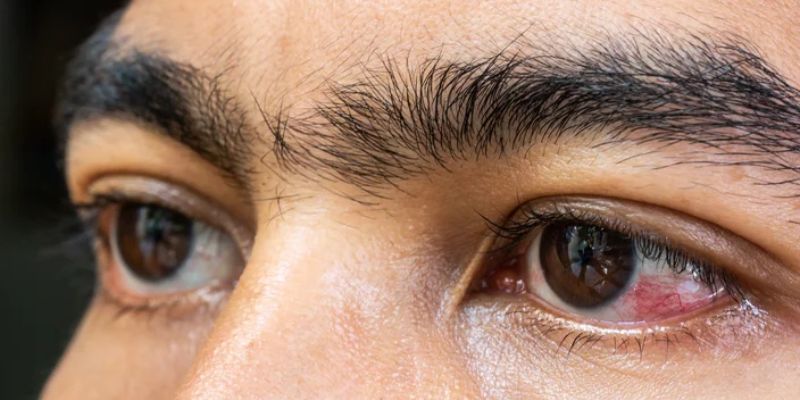Narcolepsy: Genetic? Sleep Experts on Inheriting Chronic Disorder
Feb 20, 2024 By Madison Evans
Is narcolepsy in your family? Have you ever worried if you could be susceptible to sleep paralysis after seeing someone else's abrupt onset of sleepiness? Researchers are still trying to determine if narcolepsy is a hereditary disorder or the result of environmental factors.
According to the US National Library of Medicine, it is now thought that many causes may be at play. We know how difficult it is to be in the dark about anything, so we've done the legwork for you and assembled all the information you need to understand narcolepsy and its genetic component.
What Is Narcolepsy?

In the most fundamental terms: lead neuroscientist and sleep expert, describes narcolepsy as a sleep disease characterized by excessive daytime drowsiness. There are three distinct forms of narcolepsy, as classified by the NINDS:
Type 1 Narcolepsy
It is characterized by low levels of hypocretin, a brain chemical that generates alertness, and the symptom of "cataplexy," the abrupt weakening of muscles when awake. There are additional symptoms present at the same time.
Type 2 Narcolepsy
Instances of narcolepsy in which cataplexy is absent, but general symptoms persist. Normal levels of hypocretin are also present.
Secondary Narcolepsy
Wherein the hypothalamus of the brain has been damaged, causing narcolepsy symptoms. According to the NINDS, symptoms of narcolepsy might include sleep paralysis, hallucinations, and fragmented sleep. After nodding asleep for a few seconds, it's possible to resume a routine activity like eating or conversing without realizing it.
Why Does One Suffer From Narcolepsy?
Several hypotheses have been advanced on the origins of narcolepsy. According to NINDS, hypocretin levels may be lowered due to several causes. Components of the risk environment include:
An Autoimmune Condition
The decreased levels of hypocretin in persons with narcolepsy type 1 are thought to be caused by this leading theory. According to the NINDS, in this scenario, the immune system attacks hypocretin neurons in the brain.
The flu
According to Stanford Medicine, narcolepsy and the flu may be linked.
Brain Damage
Rarely, narcolepsy can be brought on by tumours, infections, or head injuries that damage the regions of the brain responsible for maintaining awake.
Genetics
A commentary published in the journal Sleep suggests that having a close relative with narcolepsy may increase one's risk of acquiring the condition.
How Heritable Is Narcolepsy?

Let's reevaluate around to that final statement about genetics for a moment. Unlike sleep apnea, the more prevalent disease for which a hereditary component has been estimated at 40% (Sleep discussion), narcolepsy is not often handed down through generations.
The founder of Menlo Park Psychiatry & Sleep Medicine, board certified in psychiatry and sleep medicine, has uncovered evidence of "a minor hereditary component" in cases with narcolepsy type 1.
The risk is still rather low, but it raises the likelihood of contracting the uncommon disease by 10 to 40 compared to the general population. Ten per cent or more of narcoleptics report having a family member with the disorder.
However, NINDS notes that it might indicate another sleep problem or a cluster of unusual occurrences. "The vast majority of occurrences of narcolepsy are sporadic, meaning they develop in persons with no known relatives who also suffer from the condition.
Genetic research has revealed an intriguing fact: practically everyone who suffers from narcolepsy type 1 also carries a specific HLA gene called HLA-DQB1. According to the US National Library of Medicine, HLA genes aid the immune system in telling its proteins apart from those of foreign invaders.
Should I Be Tested If Narcolepsy Runs In My Family?
Because of the weak link between narcolepsy and heredity, screening for the disorder is unnecessary unless you already exhibit symptoms. Treatment for narcolepsy varies only according to symptoms and not by how long a person has had the disorder, which contrasts with many other health issues. Moreover, there is no treatment available right now.
The genes responsible for narcolepsy have also been linked to other chronic tiredness syndromes, such as multiple sclerosis, lupus, psoriatic arthritis, and rheumatoid arthritis.
Consequently, she suggests testing for narcolepsy and ruling out similar illnesses if there is a family history of autoimmune diseases, even if a hereditary component is uncommon with narcolepsy.
Studies exploring the role of genes and other factors in narcolepsy are ongoing. "Immune systems are notoriously difficult to study due to their complexity, yet new insights are always being uncovered. As medical research develops, we can better understand what triggers narcolepsy.
-
 Condition Oct 19, 2023
Condition Oct 19, 2023Can Booster Shots Affect Your Body Negatively?
New COVID-19 booster injections from Pfizer-BioNTech and Moderna have been improved to target circulating coronavirus strains better and are expected to expand further this fall and winter. The modernized boosters are nearly indistinguishable from the ones that were available before they were pulled off shelves a year ago
-
 Fitness Oct 25, 2023
Fitness Oct 25, 2023What Is Kinesiology Tape
Discover the unique properties and benefits of kinesiology tape. Developed for athletes, physical therapists, and healthcare professionals, learn why this innovative product is becoming increasingly popular for joint support, muscle stabilization, and pain relief.
-
 Condition Jan 19, 2024
Condition Jan 19, 2024Red Spot On Eye: Causes, Symptoms And Treatment
Have you noticed a red spot in your eye? This article explores the potential causes and treatments for eye discoloration. Get expert advice and learn more about caring for your vision here!
-
 Food Oct 19, 2023
Food Oct 19, 2023The Changing Landscape of Alcohol Consumption and Health
This article examines how society's connection with alcohol is changing and its effects on public health and individual well-being. It examines alcohol consumption trends and health impacts. Readers will comprehend the newest alcohol research, policy suggestions, and public health consequences.
